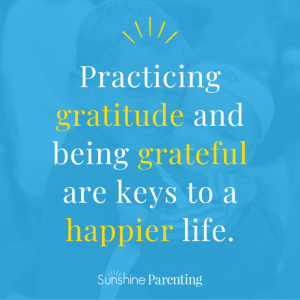What are you grateful for today?
Hey pals, welcome back for another edition of HPW’s Wellness Wednesday series. Today’s theme is mindfulness and gratitude.
Photo provided by Mindful.org
Mindfulness consists of gaining self-awareness and acceptance towards one’s thoughts, feelings, and emotions without judgment. Below are some mindfulness activities that we encourage you to try!
- Meditation
Meditation embraces the present moments by training your body and mind to be relaxed. Find a comfortable place to sit, close your eyes, and focus on your breath. Check out The Division of Mission and Ministry’s latest guided Midday Meditation.
This practice is at best after you wake up in the morning, before starting your work and/or school day and before you check your phone. The first step is to sit up in your bed or sit on a chair with your back straight and close your eyes. Take three long, deep breaths. Then ask yourself “What is my intention for today?” or use these prompts to guide you:
How might I show up today to have the best impact?
What quality of mind do I want to strengthen and develop?
What do I need to take better care of myself?
During difficult moments, how might I be more compassionate to others and myself?
How might I feel more connected and fulfilled?
The next step is to set your intention for the day, make it plan, and write it down.
“Today, I will focus on being kind to and myself”
“Today, I will focus on completing as much as I can until 5:00 PM”
Then throughout your day, check-in with yourself by re0visitng your intention statement.
- Five Senses Activity The goal of this exercise is to keep yourself grounded in the present moment by noticing your surroundings.
What are 5 things that you can see?
What are 4 things that you can feel?
What are 3 things you can hear?
What are 2 things you can smell?
What is 1 thing that you can taste?
- Mindful Breathing for One Minute.
For one minute, focus on your breathing. Breathe in through your nostrils and out through your mouth. Place your hand on your stomach and notice how your hand gently rises and falls with your breath.
S: Stand up. Stand up, close your eyes, and breathe slowly and deeply.
T: Tune in to your body. Notice your bodily sensations, feelings, thoughts, and emotions. Breathe in positivity and breathe out negativity.
O: Observe. Open your eyes, observe your surroundings. Lift your eyes and take in your surroundings. Be grateful for your surroundings and embrace the beauty of it.
P: Possibility. Ask yourself what is possible? What is new? What is your next forward step?
For more mindfulness activities, click here.
The Science of Mindfulness
Research studies show that mindfulness decreases anxiety, reduction in perceived stress, decrease depressive symptoms, and improves on emotional and mental well-being. There is an online program that is called Mindfulness-based stress reduction (MBSR). It is an eight-week evidence-based program that offers mindfulness training to help individuals with their stress, anxiety, depression, and pain.
When engaging in this mindfulness training, MBSR studies show that the left frontal activity of the brain is enhanced which means that the brain is developing resilience. Studies also show that there also an improvement in our immune system when we engage in mindfulness activities. So, our bodies’ ability to fight infection starts to improve when we engage in mindfulness. MBSR studies also show that having mindfulness activities as a part of a treatment plan for individuals who have mental health illnesses, such as drug addiction, obsessive-compulsive disorder, borderline personality disorder helps prevent relapse from depression.
Expressing gratitude is another mindfulness activity. Expressing gratitude is showing thankfulness and appreciation to someone, including yourself.
Here are some ways to practice gratitude:
- Praising the Small Victories.
There is success in the small victories too so let us celebrate them. Remember that progress matters, not perfection. You are still winning, even if it is a small win. Claim your victory.
- Keep a Gratitude Journal
Photo provided by positivepsychology.com
Daily, write down the things that you are thankful/grateful for. Start writing down “I am thankful for…”. Once you start, it is hard to stop. After you start writing a list then you will recognize the many blessings that you have received.
- Writing an Appreciation or a Love Letter to You and/or a Loved One
Sometimes we emotionally and mentally beat ourselves up to more than we show appreciation to ourselves. Today, we encourage you to give yourself some grace by writing an appreciation or a love letter to yourself. We also sometimes forget to show appreciation and love to our family and friends, so we encourage you to take some time to write a love/appreciation letter to them.
- Verbally Telling your Loved One What You Appreciate Them For
Tell your friend and/or family friend how much you appreciate them and remind them that you appreciate them.
For more gratitude activities, click here.
The Science of Gratitude
Research studies show that expressing gratitude increases one’s happiness, energy, self-esteem, and strengthens resiliency. Studies also show it decreases chronic pain levels and reduces blood pressure levels. Showing gratitude starts the production of dopamine and serotonin which are our “feel-good neurotransmitters”. Gratitude also stimulates the hypothalamus and the ventral tegmental area. The hypothalamus’ role is to keep the body in homeostasis, which means to make sure everything is balanced. So, this part of the brain regulates stress and the ventral tegmental area is involved in developing and expressing feelings and emotions such as feelings of pleasure.
Also, the more you practice gratitude, the more you train your prefrontal cortex to retain positive thoughts, emotions, and experiences and kick out the negativity.
Remember, mindfulness & gratitude are not about invalidating difficult emotions—it’s about acceptance.
Click here for the recorded Wellness Wednesday Zoom session.



